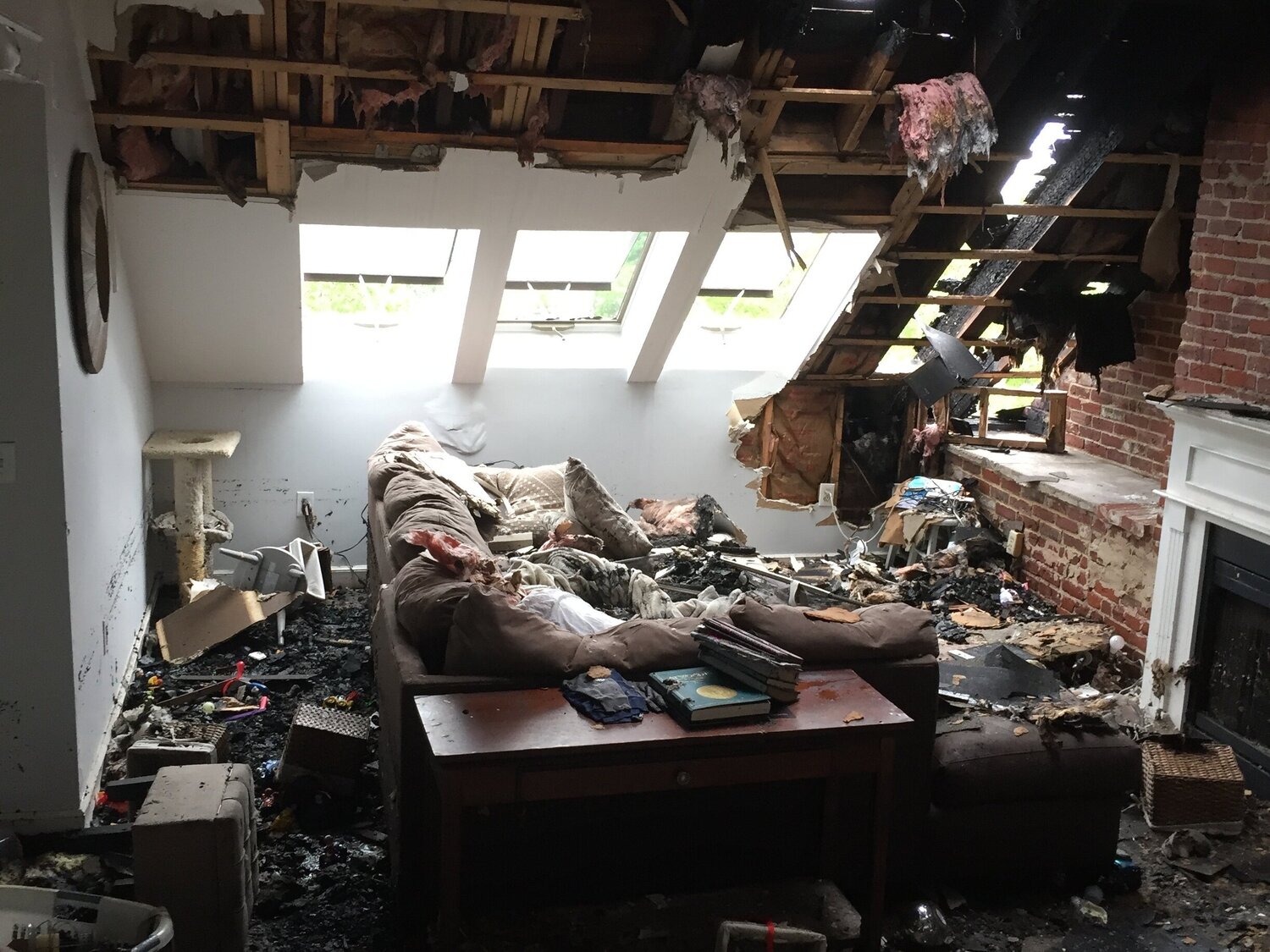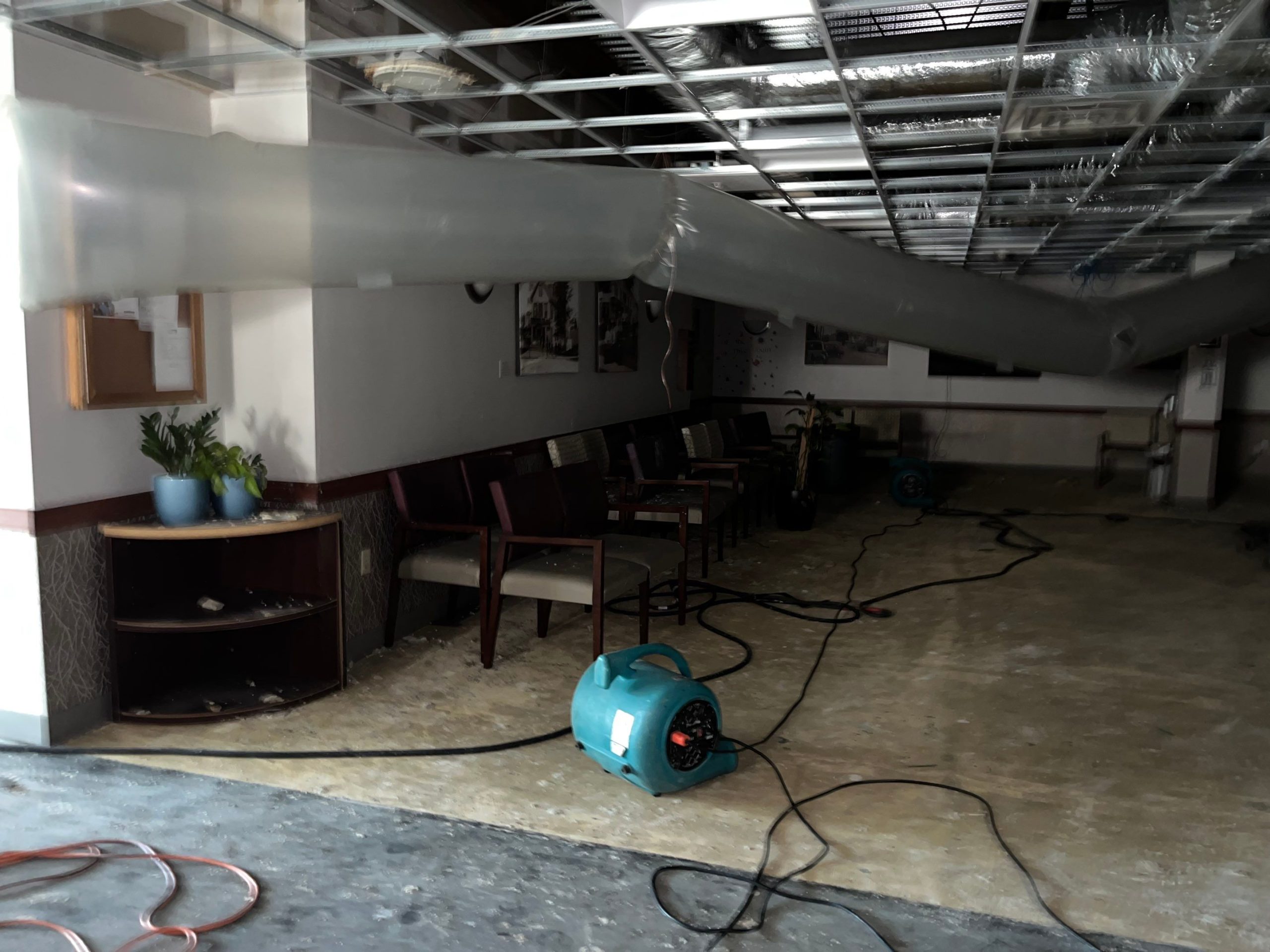Scott also offered some “lessons learned” from the experience of reconstructing the Reading condo building. “What I’d do differently,” he says, includes the following advice for other property managers:
Set a Dedicated Resource for Communications
Previously, Scott underscored the importance of communications. And that priority received appropriate attention. Next time, though, Scott believes it would be more efficient to hire someone to be the conduit for communications. That person could come in, receive a download from Scott, and share it with the Brigs staff as part of a broader communications system that he would quickly put in place. Looking back, Scott sees some communications that would have been improved by a better system.
Beware the HO6 Policy
In Scott’s view, most HO6 policies are inadequate and don’t cover what owners really need in terms of personal property. Why? Well, when you buy a home, the first thing you do is move in and buy a bunch of stuff. Everything you bring into your house adds value to your personal property. But until a catastrophic loss occurs, people don’t tend to think about purchasing adequate insurance – this includes loss of use and loss assessment coverage.
Have an Insurance Coordinator
Internally, Scott is now assigning all insurance policies to a single team member who is tasked with overseeing all policy renewals and anything related to insurance. This way, he can track it. Coverage is always an ebb and flow, he explains, and busy property managers can only do so much to get owners to get an independent assessment. But the lesson of Reading is clear: insurance proceeds will not always cover actual losses unless owners document all upgrades and changes and get independent appraisals.
Talk to Your Insurance Agent
Scott is developing an insurance program within his company because of his disappointment with several insurance agents he encountered during the Reading experience. Scott values an agent who will take the time to reach out and speak to him, especially after a loss, and who is a true partner. He has a hard time understanding why more agents don’t explain to property owners the value of increasing their personal property coverage. As the head of a property management company, he is working to be better at providing information to his clients.
Unit and Common Area Upgrades
The condo association made the decision to restore each unit to its exact condition just before the fire. This restoration included whatever individual upgrades each respective unit owner installed prior to the fire – granite counter tops, custom showers, etc. The General Contractor didn’t want different (unaffiliated) subcontractors in the building, so each unit owner had to coordinate with the primary GC to get such custom work reinstalled. At the same time, the board recognized the opportunity to upgrade certain safety and security elements of the building. The priorities in this regard included a new key fob access system, and video cameras in common areas. These amenities were installed because the rebuild presented the opportunity to upgrade the building to a 2020 construction – but these items weren’t included in the insurance payout. While it added to the costs, it was the right time to make these upgrades, as doing this work while the building was already being worked on saved construction-related money in the long run.
General Contractors (GC) and Timing
When change orders produce delays in the ‘move-in’ schedule, Scott wants the GC to communicate that new timing. This way, Scott can prepare the unit owners and explain the delay. Change orders are somewhat unavoidable, and for each one, Scott’s GC promptly revised (added to) the construction bill. What Scott did not get, however, was an alert that the extra work would delay the agreed-upon finish date. This left Scott in the position of repeatedly delivering bad news to unit owners about the move-in day, prompting frustration all around. Next time, Scott will insist on receiving communication from the GC any time a change order – or anything else – might impact the move-in date. This should avoid the painful ‘false’ move-in dates that frustrate owners and property managers alike. Scott recommends setting a broader timeline that allows for minor delays. That way, property managers get to deliver good news when the project finishes ahead of schedule.
The COVID Effect
Like everyone else, Scott’s team was impacted by the COVID pandemic. Luckily, most unit owners managed to move back in – despite difficulties finding moving companies – before the quarantine went into full effect in Massachusetts. One unit sold around this time, and several sales fell through. Finalizing the fine details – the infamous “punch list” – has slowed down due to the difficulty of getting contractors safely into the building. From a property management standpoint, COVID has made it difficult to visit the Reading property, as well as other properties in Scott’s portfolio. Luckily, he already had emergency protocols in place. Although designed for snow and hurricane scenarios, these worked to keep Scott’s team from missing a beat as far as service and responsiveness went.
The PA Experience
Scott has worked with multiple public adjusters (PAs), and appreciates the value a good PA delivers to a property manager. He favors SMW because “the Swerling team is the most professional and educated staff I’ve dealt with – the team approach is really outstanding and helpful.” He is especially fond of the SMW educational piece – he likes that he can call SMW, ask questions and get informed answers, even long after the claim has been settled. He knows he can check in anytime with the SMW team, and he is fully confident that he will get detailed, in-depth information based on his inquiry. Considering that he has the same philosophy about his own business – “If helpful to others, I enjoy being a resource – even if it’s not a direct client engagement” – he values that approach from SMW.
Conclusion
As the managing director of Brigs LLC, the premier full-service property management company in the Northeast, Scott Wolf is an established expert in meeting the needs of a condominium community. But even he had some lessons to learn from the Reading fire. By laying out what went right and what can be improved, he hopes property managers will be better prepared in the event they, too, have to manage a large reconstruction.




